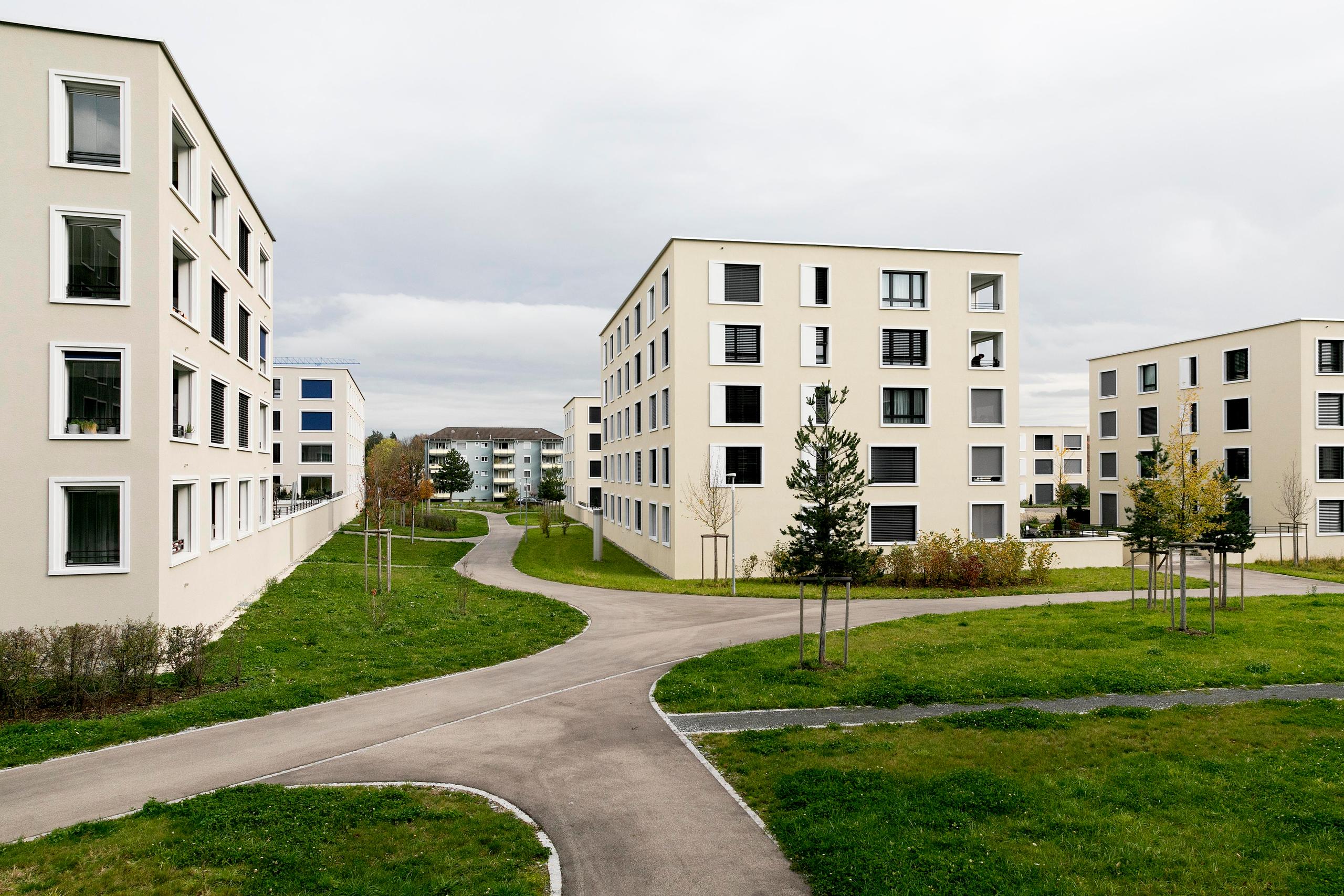Swiss real estate market suffers fallout from epidemic

The Covid-19 crisis could spell an end to the previously rosy situation for Switzerland’s real estate investors.
Investors in residential property look back on a successful 2019 both in terms of value increase and of returns. Forecasts for the current year were optimistic until recently, for both property owners and renters.
The Swiss National Bank’s negative interest rate policy led to a surplus of apartments and other rented out office space, which in turn drove down rents.
Then the coronavirus crisis turned everything upside down.
“All the economic forecasts were wrong,” Donator Scognamiglio, chief executive of the Zurich-based real estate consulting firm, IAZIExternal link. So how will the property market in Switzerland market be able to cope amid largely uncharted territory?
No ordinary crisis
Direct investments in the real estate sector have always remained extremely stable in past crises, notably when the so-called dotcom bubble burst in 2001 or during the 2008 global financial crisis.
One reason for the stability of real estate investments is that rents continue to be paid even during a stock market crash, meaning any losses in value can be absorbed in times of crises.
But can the the current situation be compared to past stock market crises? The looming economic difficulties are only one element of the whole raft of problems triggered by Covid-19, so events like the 2008 financial crisis are not a valid reference point for Scognamiglio and his firm. Instead, IAZI compares the current situation with the impact the 1918 Spanish flu epidemic had on the economy.
There are “not enough forecasts or scenarios to gauge the economic and medical consequences of a disaster such as that flu epidemic,” the firm concludes.
Lockdown and rents
That also means rental income is no longer reliable. Most people will continue to live in their apartments and homes during the epidemic, but shops and offices also make up an significant share of tenants. And restrictions on social activities have put many such small businesses in financial difficulties.
“We’ve never considered this aspect,” admits Scognamiglio. “What happens when the hairdresser shuts down? Or when the shopping centre is closed for business? And if the bakery suffers a drop in turnover?”
The retail sector and restaurants in particular are expected to struggle with paying rent on their premises.
Multi-family houses
But Scognamiglio remains optimistic about some aspects of the real estate market, which he assumes will ultimately recover as part of a yo-yo effect. Although consumption is low at the moment as a result of the economic restrictions in place, some of the consumption will be made up for later, once restrictions are lifted.
Multi-family dwellings are still a safe investment, he says.
“Would I buy an apartment building in the next six months? Yes, of course! Can I consider myself lucky if I already own several apartment buildings? Yes, yes, yes!” emphasises the IAZI chief executive.
But the situation for owners of single-family homes looking to sell is not quite as comfortable, he says. Many potential clients might feel unsettled by the economic situation and shy away from making major investments.
Crisis but no crash
“Chances of a real estate crisis are very high, but it’s unlikely to be a big crash like the subprime mortgage crisis,” says Scognamiglio.
And he says a crisis can be avoided if there is no massive rise in interest rates at the same time.
Ultimately, Scognamiglio hopes that the measures ordered by the Swiss government, notably an economic relief package to the tune of CHF42 billion ($44.1 billion), will help stabilise the situation.

More
Coronavirus: the situation in Switzerland
Adapted from German/urs

In compliance with the JTI standards
More: SWI swissinfo.ch certified by the Journalism Trust Initiative














You can find an overview of ongoing debates with our journalists here . Please join us!
If you want to start a conversation about a topic raised in this article or want to report factual errors, email us at english@swissinfo.ch.